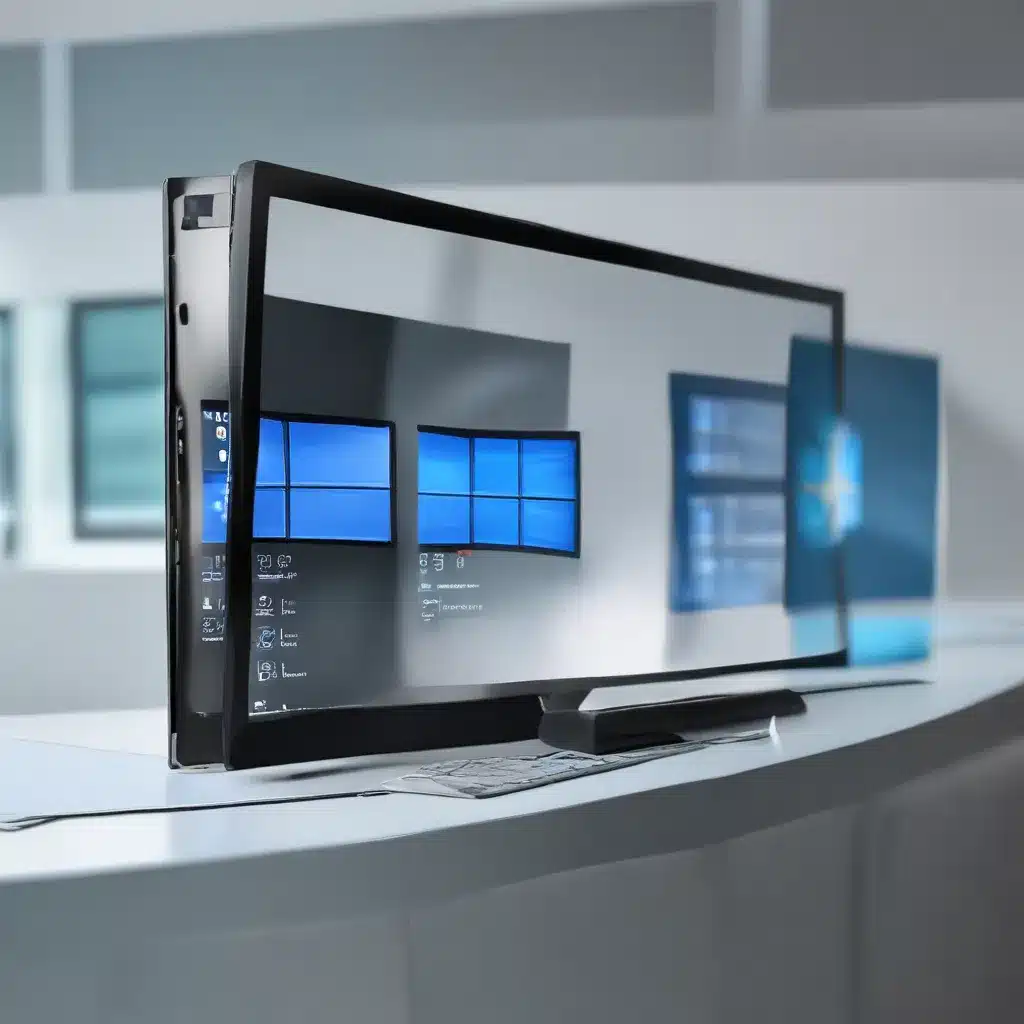
Upgrading to Windows 11: The Great Dilemma
As the proud owner of a computer repair service in the UK, I’ve seen my fair share of operating system upgrades over the years. From the clunky Windows Vista to the surprisingly smooth transition to Windows 10, each new release has brought its own set of challenges and opportunities. But when it comes to the latest offering from Microsoft, Windows 11, the decision to upgrade isn’t as straightforward as it might seem.
According to IT Pro, Windows 11 is primarily a “cosmetic change” for the average user, with the real benefits aimed at business users and IT administrators. But before you jump on the Windows 11 bandwagon, it’s crucial to weigh the pros and cons carefully.
Navigating the Windows 11 Hardware Requirements
One of the biggest hurdles to upgrading to Windows 11 is the strict hardware requirements set by Microsoft. As IT Pro points out, your machines need to be running recent chipsets, have hardware-assisted security features like UEFI firmware and Trusted Platform Module (TPM) 2.0, and meet other criteria like a minimum of 4GB RAM and 64GB of storage.
I recently put one of my go-to Lenovo Ideapads to the test, and it failed the Windows 11 compatibility check on three counts. Even though the machine had more than enough processing power and RAM to handle the new OS, the outdated chipset and lack of necessary security features made it a no-go. This means that unless you’re replacing your entire hardware inventory on a regular basis, the prospect of upgrading to Windows 11 might be a non-starter for many businesses.
Weighing the Pros and Cons
Now, let’s dive into the potential benefits of making the switch to Windows 11. According to Microsoft’s own resources, the new operating system offers improved cloud management, better integration with Microsoft Teams, and the introduction of Azure Virtual Desktop – all of which can be game-changers for businesses with remote or hybrid workforces.
However, as IT Pro points out, there are also some potentially deal-breaking downsides. The loss of the beloved Timeline feature and Tablet mode, as well as the absence of Internet Explorer, could be significant obstacles for some companies. And let’s not forget the inevitable disruption and training required for employees to adapt to the new interface and changes.
Making the Decision: Is Windows 11 Worth It?
Ultimately, whether Windows 11 is the right choice for your business boils down to a careful assessment of your specific needs and IT infrastructure. If you have a modern, compatible hardware fleet and your employees are already well-versed in the Microsoft ecosystem, the benefits of upgrading may outweigh the drawbacks.
However, if your current Windows 10 setup is working well, and you’re not particularly eager to deal with the potential compatibility issues and learning curve, it might be best to hold off on the Windows 11 transition for now. After all, Microsoft has committed to supporting Windows 10 until 2025, giving you plenty of time to weigh your options.
At IT Fix, we’ve been closely monitoring the Windows 11 rollout and are here to help our clients navigate this complex decision. Whether you need guidance on hardware compatibility, advice on managing the upgrade process, or support with the inevitable IT challenges that come with a new operating system, our team of experts is just a phone call away. So, don’t hesitate to reach out if you’re feeling overwhelmed by the Windows 11 conundrum – we’re here to help you make the best decision for your business.












